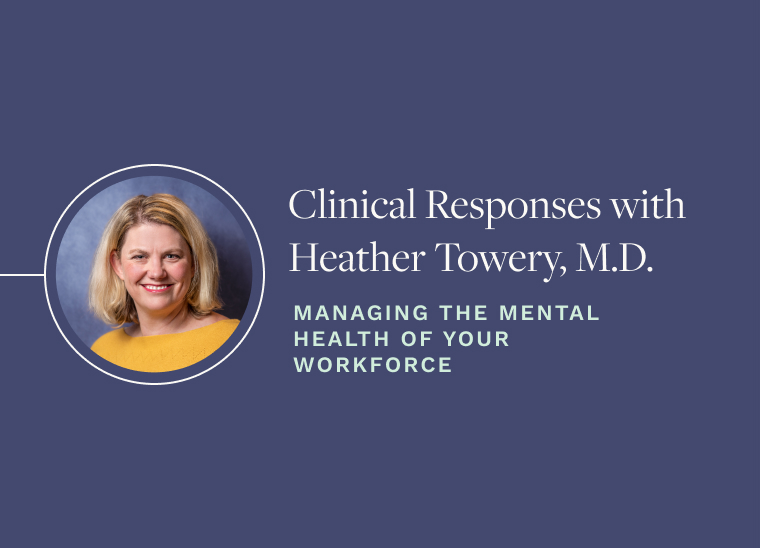Two years ago this month, many of us were preparing our workforce to work from home for a few weeks to flatten the initial curve of COVID-19 infections. Most of us had probably not yet thought about the possibility that we would be working from home for even longer stretches of time, if not permanently. Employees have experienced a lot of tumult in the past two years, resulting in an increased need to support their mental health both acutely and in the long term.
COVID-19 UPDATE
- While COVID-19 case counts from the Omicron wave are declining, we need to maintain vigilance. Most cases have been mild, but many people, mainly the unvaccinated, have had severe disease and poor outcomes. We will need to follow the data to see how COVID-19 behaves as mask mandates change.
- Scientists are still studying a new COVID-19 variant known as BA.2 — it seems to be moving as fast and causing similar disease outcomes to Omicron.
- Various state and local authorities have dropped mask mandates. While this may be confusing, as we know plenty of people are still becoming infected with COVID-19, it is a signal that states and municipalities, like employers, are preparing people to move to the next stage of pandemic risk mitigation.
EMPLOYEE MENTAL HEALTH
The past two years fundamentally changed the way we work, how we engage with our employees and the types of benefits that matter to them. We discovered new ways to support employee well-being — particularly their mental health — as they faced unprecedented challenges and new stressors during this time. Here are some tips for helping employees manage their mental health:
- Acknowledge that not all employees will adjust to returning to work in the same way or simultaneously. For some, going back to the office is a long-awaited wish. It will be a stressor they need to work through for others before becoming comfortable with new workplace expectations. Employees will want to hear from their employer that they are supported as they transition to a permanent work environment.
- Remind employees where they can get help if they need it and get to the care that best fits their needs. Resources such as a mindfulness app or an EAP can address temporary mental health needs with low acuity. Higher acuity longer-term needs should be managed by a medical provider directly through Eden Health, an onsite or virtual mental health provider.
- Create consistency. Employees have been living with changing rules and stops and starts as the pandemic has evolved. This can result in anxiety and burnout. Establishing new or reviving old team activities (and adapting them for the hybrid workforce) will help employees build camaraderie, improving mental well-being in the workplace. Similarly, communicating regularly and providing information about future plans and contingencies will help employees prepare.
- In response to employee needs, many employers modified their benefits during the pandemic to provide more flexibility in terms of work arrangements, broader support for caregiving, and a greater ability to access healthcare services by using virtual solutions, including mental health. Regular surveys or feedback from employee resource groups can help ensure you continually meet your workforce’s needs and expectations.
Eden Health’s collaborative care approach fully integrates primary care and mental health so that your employees quickly get the support they need. Eden primary care providers (PCPs) routinely perform mental health screenings when employees reach out with a physical complaint such as stomach pain, headaches, or fatigue that may be linked to their mental health. Eden PCPs can prescribe and manage medications and have rapid access to Eden’s psychiatric team for consultations. Eden’s PCPs and Healthcare Navigators are also able to help secure appointments for patients with a licensed therapist at Eden Health.*
To learn more about our collaborative care approach, request a demo from a member of our team today.
*Mental health therapy is typically an additional charge.
Disclaimer: This information is based on current resources available and is subject to change. This document and its contents are provided for informational purposes only, and not intended to be, and should not be understood or treated as, a substitute for professional medical advice around COVID-19, its risks or symptoms, or to take the place of any local, state and national laws and guidelines around COVID-19. Always seek the advice of a physician or other qualified health provider with any questions you may have regarding a medical condition.





